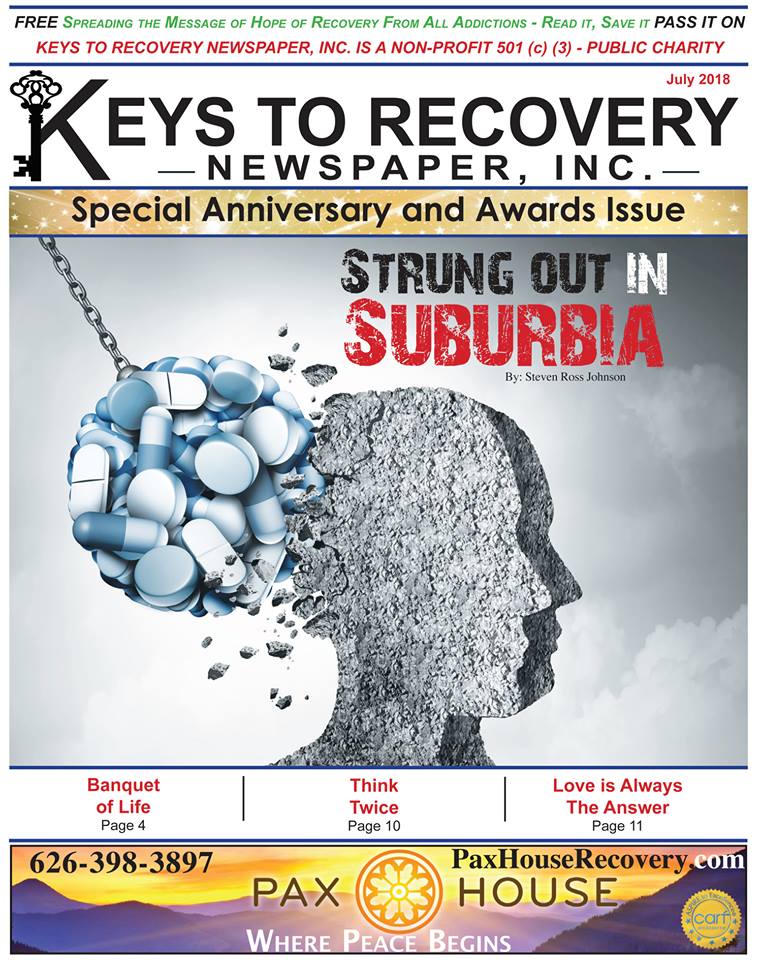This is part of a series called “The Bottled Scream” A Disease of Self – Understanding Addiction and Recovery. To go back to the introduction click here.
Addiction
When all else fails

My first AA meeting was on Christmas Eve, 2005 in a local Church Hall. Emma accompanied me there. Drove me and then walked me to the hall. I was so weak I couldn’t walk so needed her arm to lean on. I needed her moral support too. There were references to my jaundice waiting for me on the front door step, when one of the AAs sarcastically, in racist tomes, asked me if I had “just gotten off the boat?”His understanding and compassionate nature later went on the serve multiple years for child abuse.
Anyway, I was too weak to punch him and ventured indoors. I was surprised to see that a guy I had drank with, from time to time in my local bar, was there and seemed to be in charge of the meeting. I was surprised to see him as I didn’t think he drank that much! He had drunk about the same amount I had spilled off my chin. This made me feel stupid and ashamed, why hadn’t I come here before? Looking at him, I should have come to AA years ago, before, it was too late.
I felt at more at home, as someone with psychosis could do, with him being there. It helped me. It wasn’t just me in this boat. We joined a dozen men sitting in a circle around a large table. I felt like a freak with my glowing skin. We were told, perhaps for my benefit, that in the meeting people would share their stories and the rest of us would just listen, with interrupting, and try to identify with their testimonies. I was relieved that I didn’t have to speak and could get away with just listening, which, given my psychosis, was difficult enough.
There were sparkling multi-coloured Christmas lights hung everywhere, with a Nativity scene beside us. The Catholic feel to proceedings helped me feel at home for a moment too. Then it made me feel ashamed. How far I had fallen, from the hopes and dreams of my parents for me. First of my family to go to University and now sat here? How the hell had I got here? My stomach flipped with emotion, anxiety and self pity. Maybe this was a waste of time, I was too far gone? Thoughts had long since become my enemy, creating tsunamis of emotions that overwhelmed me. They were unceasing in my mind. The meeting began and we listened to a preamble and a man reading from a book. The thoughts eventually quietened enough for me to listen to other people speaking.
Right from the start, two things struck me. Firstly, there wasn’t much talk about alcohol, most of the sharing was about what they called alcoholism. Secondly, instead of dwelling on drinking and how to stop drinking, or even cut down, they talked about what made them return to drinking; a thing they kept referring to as a spiritual malady, which someone described as an inabilty to live life on life’s terms and another called being maladjusted to life.
They seemed to be saying that something, inside them, made them drink and return to drinking, even when they didn’t want to. It was that, that was their alcoholism, not the symptom, the drinking of alcohol. It was revelatory. There could be something done about this without simply whiteknuckling it! There was a reason for drinking that wasn’t just craving? In fact, in some cases, the craving must have been caused by something other than wanting to drink. Some said their craving dispapeared after coming into recovery. This was absolutely astonishing. I thought to myself, they can’t have drunk much? One person said they had been on 3 bottles of brandy a day and had the obsession to drink lifted after coming into AA. How? By admitting they were alcoholic! . My addled brain struggled to fathom this. How was this all possible? How could admitting you are alcoholic have such a profound result?
Until now, I had thought my upbringing in the “Troubles” in Northern Ieland in a dysfunctional family had been the cause of my drinking and mental health problems. They seemed to be saying it was my reaction to my life that caused my difficulties with alcohol, and other substances. Not everyone who lived there became alcoholic! Two of my three sisters weren’t alcoholic. Two out of four siblings weren’t alcoholic. They maybe reacting differently to life that me and my alcoholic sister? The reason I suffered from alcoholism was because I was an alcoholic. It was disease; I was not weak or bad but ill and suffering from a chronic condition from which there was no cure, but could to be managed, one day at a time.
Everything in the “shares”; testamonies to what it was like drinking, what happened for them to stop and what it was like now, in that first meeting would crop up again years later in my neuroscience research – the spiritual malady, emotion disease, hole in the soul, not belonging anywhere. The men saying they were not sure what they were feeling half the time, how they could be emotionally immature or grandiose, in the gutter looking down on the world. How they never fitted in. Felt less than, defective. How they were never given a manual on how to live. Their struggle to contain their emotions, their fear based thinking.
My paranoia gripped me at various times, made me wonder if these people had somehow been planted here by someone, to make me realise I was like them..an alcoholic! Emma must have played some part in it?How else would they know enough about me to share things which were practically about me? It was too uncanny, the similarities with their life stories and mine. It was difficult to explain otherwise. Other than, there were some peope in this world that are like me, and these people are alcoholics. They are like me for reasons to do with them being alcoholic but also in how they react to the world. There were people who had a combination of what someone called an emotion disease and problem drinking and this seemed somehow linked. I later found out that in meetings where there is a newcomer, in this case me, the shares are with the newcomer in mind. I really think all the people sharing pulled out all the stops, probably thinking if I didn’t get it soon, there would’nt be much time to get it later. They all probably felt sorry for Emma too and her desperation for me to get help.
It was life or death now. All the shares started with how it was impossible to stop drinking after starting or staying stopped after giving up drinking for a while. They were always led back to the drink, often against their will. They then shared on what brought them back, this spiritual malady, this emotion disease. In dealing with this malady, one day at a time, they stayed sober. They dealt with it by living a spiritual life.
There was alot to take in but it all sounded like me. Not only the malady and the alcoholism but the solution. I had long been interested in Buddhism and had practised it for a number of years, and for months had been sober doing so. In fact, Buddhist practise coincided with my longest period of sobriety, 6 months. So there had ben some connection there, I hadn’t fully understood. The piece of the puzzle I had missed was my alcoholism, whch had been there from the very start of my binge drinking at the age of 15. In fact, from the age of 27, I knew I couldn’t stop drinking when I started and the very few attempts to stay stopped were for pathetically short periods of time. I remember thinking this insight was too more to bear at the time so I buried it away from my consciousness. I didn’t want my crutch to be taken away. I couldn’t face life at that time, and afterwards, without it. How was this not a problem?
Denial of reality. But the drink was seeing me through these tough times, wasn’t it? It was my friend, my best friend. My lover. My everything. Seems like it was creating most of the tough times without me realising, making the bad worse. Progressively worse. It is a progressive illness one man stated. It never gets better, only worse. AA is where you come when you have been everywhere else, pyschiatrists, therapists, mental health institutions, prisons. It is the last step before the grave for many.
It is sobering, in the sense of creating a sane perspective, to realise, that alcohol is addictive and results in full blown addiction. It is strange it is rarely spoken about in these terms, in the same terms as other drugs. I could admit I was addicted to alcohol, it was admitting I was also stricken by this most ugly named condition, alcoholism. That would require me to say I was more than addicted somehow, that it was more than my tough upbringing. That there was something fundamentally wrong with me? That I had to be accountable. That alcohol had been a most addictive medication for my, as yet, undiagnosed condition. Admitting I was powerless over alcohol was what it came down to, that my life had become unmanageable. That was all I had to do now, today.
When the meeting was drawing to a close, my old drinking pal, and Chair of the meeting, asked if anyone else wanted to share? I was so so nervous but plucked up enough courage, to say,
“My name is Seamas, and I’m an alcoholic!”
“Hi Seamas!” was the warm heart-felt chorus back at me. I felt instantly accepted. I instantly belonged.
“Just wanted to say thank you for being here, I’m glad to be here”.
“Thank you Seamas”
I was where I should be. The relief of saying I am an alcoholic was immense, like a bottle had been corked and a spirit released. Like I had been released from my imprisonment, from my bondage, from my binding addiction. A catharsis! For the first time, I was out of the bottle, looking back at it, knowing there were now two possible versions of me. The drinking alcoholic and the fledging recovering alcoholic. For the first time in a couple of decades the prospect of being free to choose appeared. I had an option, other than the problem. There was a solution.
The Big Book of Alcoholics Anonymous suggests that a “psychic change”, a massive alteration in how a person thinks and feels about the world, is required for an alcoholic to recover for alcoholism. I left that meeting after having had a “psychic change”. I was different leaving as to when I was coming in. Transformed. Someone mentioned to me as I left, that at the bottom of Pandora’s box was hope. I had a morsel of hope, enough to sustain the start of recovery.
Read my Blog from 2015 about Psychic Change and Stories of Transformation here








